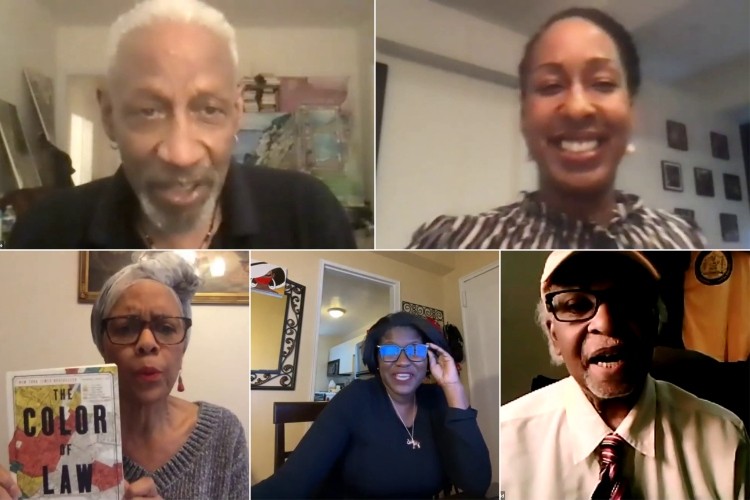Two Columbia University professors—both of whom have received the COVID-19 vaccine—discussed myths and facts about the shot at a virtual event organized by the Williamsbridge Branch of the NAACP on February 28, 2021.
Black Americans and other people of color are more likely to contract the virus and more likely to die from the infection, but they are less likely to receive the vaccine than whites. While lack of access has been a factor, mistrust of the health care system based on past medical atrocities also contributes to vaccine hesitancy among people of color, the speakers and conference organizers agreed.
Kellie Bryant, DNP, assistant professor and executive director of the Helene Fuld Health Trust Simulation Center at Columbia University School of Nursing, and Robert Fullilove, EdD, associate dean for community and minority affairs and professor of Clinical Sociomedical Sciences at Columbia University’s Mailman School of Public Health, both residents of Northern Manhattan themselves, spoke at the event, organized by the Health Committee of the NAACP-Williamsbridge, with Chair Tanya Ewan and Co-chair Joyce Howard.
“Our goal is to let people understand that the NAACP stands for factual issues, we are a social justice organization, and we want to educate our community on what the facts are,” Lorraine Brathwaite-Harte, state health chairman of the New York NAACP, told audience members.
Brathwaite-Harte provided an overview of the Tuskegee Study, in which U.S. government researchers enrolled 600 Black men—some with syphilis, some without—to investigate the natural course of the disease. When the study began, in 1932, there was no cure for syphilis. But when a cure became available in the form of penicillin, in the 1940s, men participating in the study who had syphilis were not treated, or even told that treatment was available. The study continued until 1972.
“Those men were not given an ounce of penicillin to stop their syphilis. Men died, they spread it on to their wives, and the disease continued to spread among them and nothing was done,” Brathwaite-Harte said. “There are so many other stories similar to that that we need to understand. That was a study where nothing was done.”
She added, “As far as the NAACP is concerned, we want people to understand the difference between the syphilis study, where nothing was done and there was a solution, to COVID-19, where the COVID-19 vaccine can prevent you from getting the disease.”
Read the full article at Columbia Nursing.

